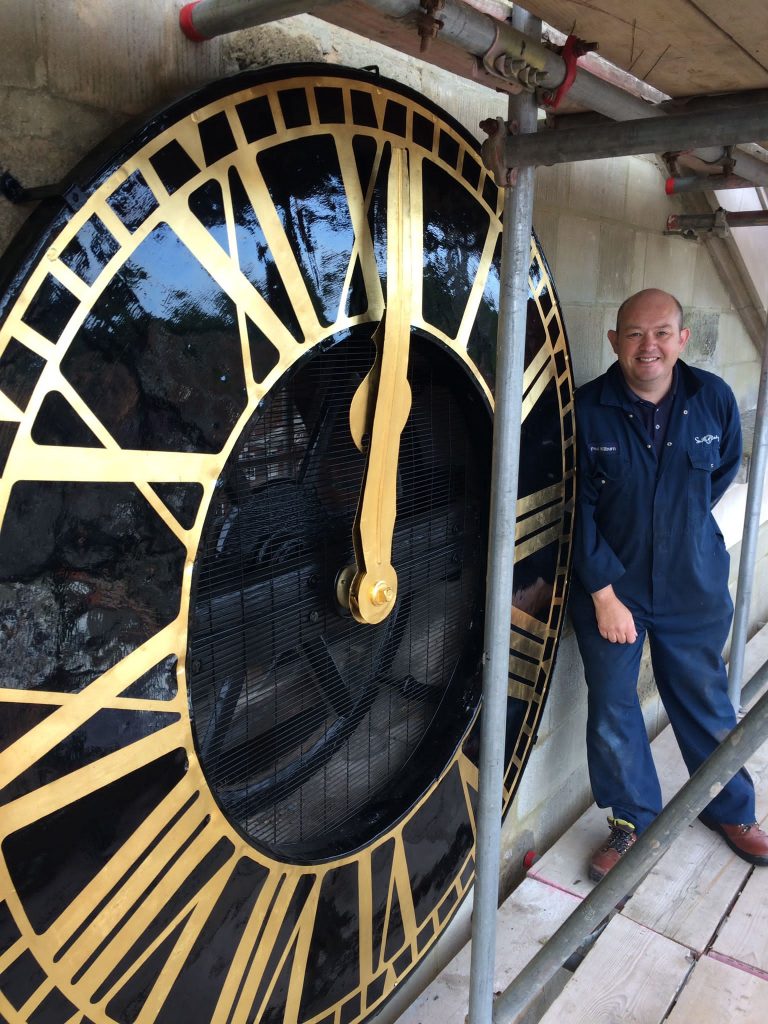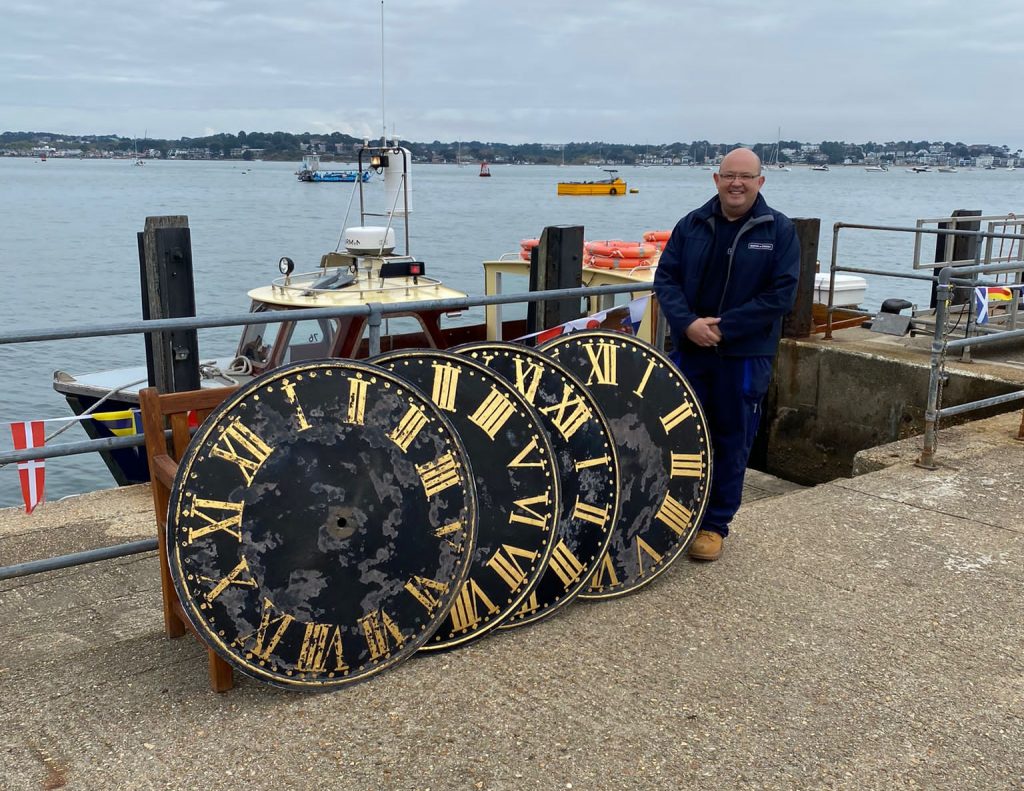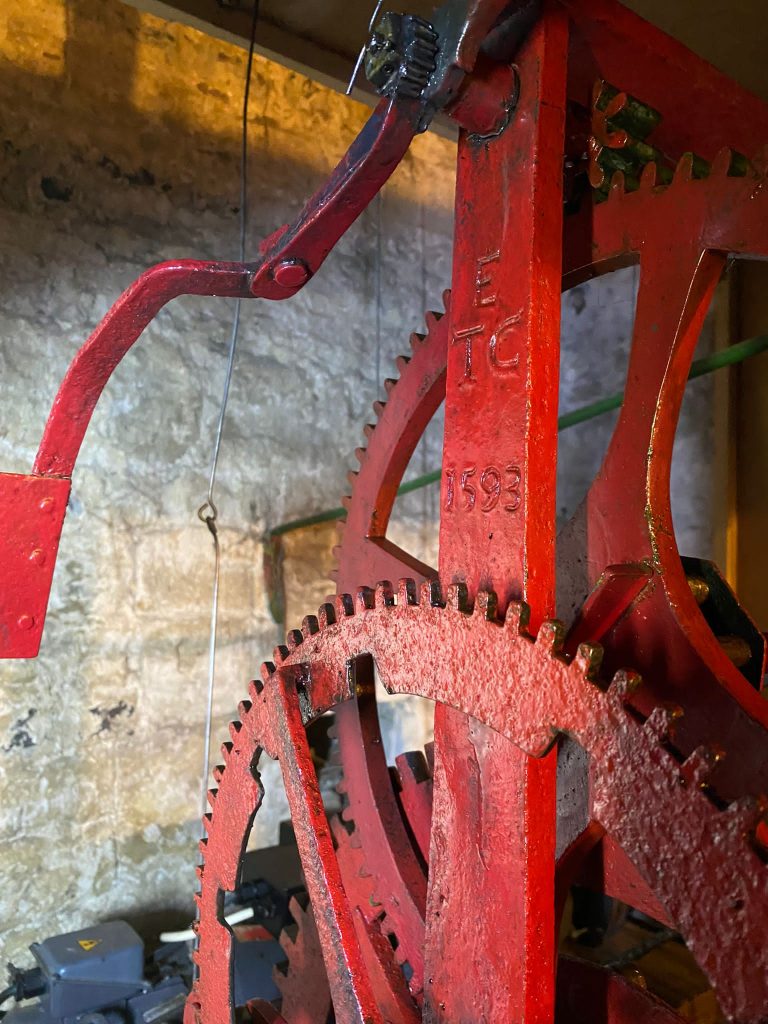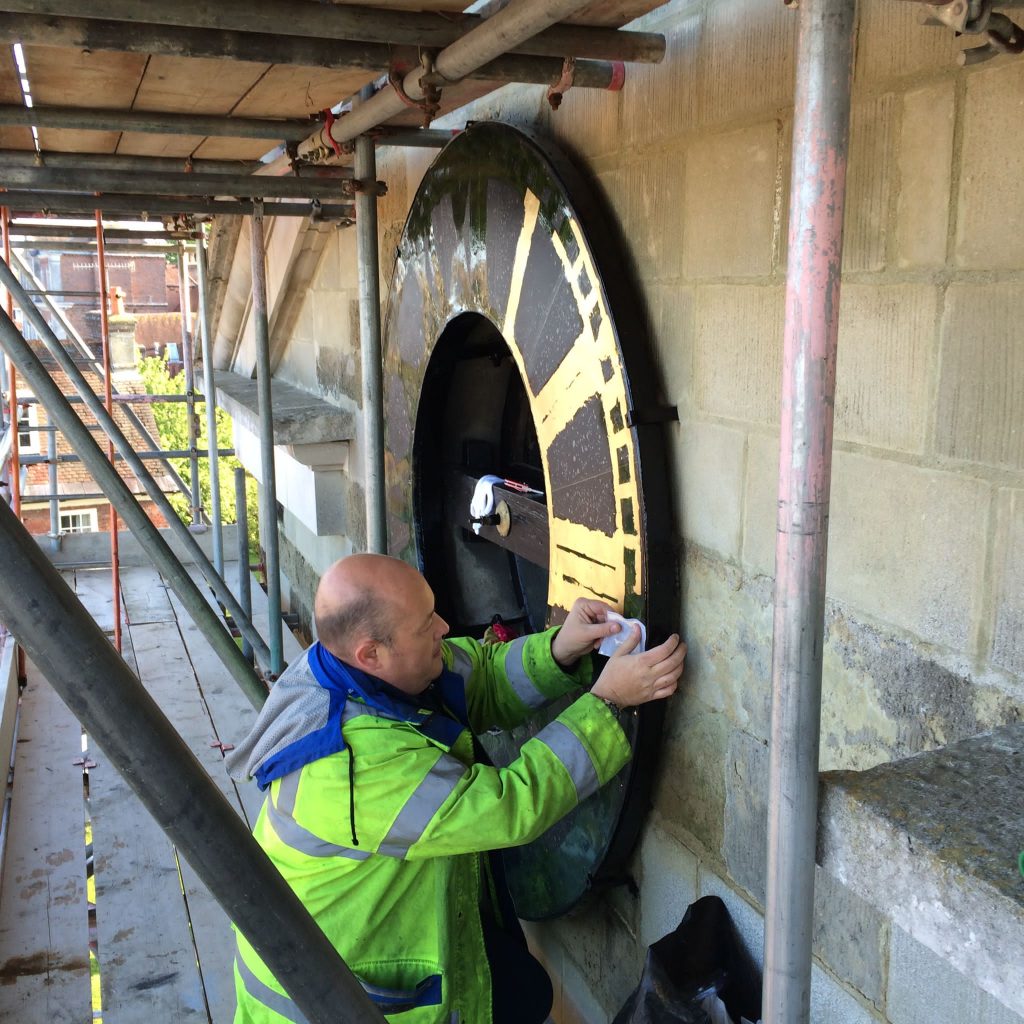With the final day of National Apprenticeship Week, we thought it would be great to hear from experienced Horologist Paul. We hear why he changed careers and entered into clockmaking, what he likes about the work he does and what he think makes a good clockmaker.
“I joined Smith of Derby in 2006 after a career in hospitality and transitioned to studying Horology. I was first introduced to clocks by my Grandfather who used to repair them, and can remember fondly as a four or five year old staring into the back of a clock case for the first time. When my Grandfather died I was left his collection of clocks and tools and, since I’d been thinking of perhaps changing careers and had always had an interest in clocks, I started tentatively by attending an evening clockmaking class and soon realised I loved it, which led me to commit to studying Horology.”

“As part of my studies we examined and worked on a variety of clocks but the world of turret clockmaking was not on my radar. I was looking for work afterwards and came across a job-posting in the Observer advertising for a Clockmaker role for Smith of Derby based in the the South East. I applied, had an interview and was offered the job shortly afterwards; spending three years in the South East of England before working with Dave in the south west and later taking over responsibility for the region.”
“I love to see something broken, brought back to life.”
“There’s a clock I look after in Dorchester, the clock at Sydling Saint Nicholas Church, which was made in 1593. It is a Tandem Clock, which was a verge, and you can still see the hammer marks where they forged it four hundred years ago. There’s another clock in Calne in Wiltshire which is dated to the 1630s. It’s fantastic. It’s basic but there is a beauty to the simplicity. When you service a clock like that the tolerances are awful but if say, you were to introduce a brand new Bush, all tight and comfortable, I’d bet money it wouldn’t work. There are these simple machines and then at the other end of things there is something like a Georgian Benjamin Vulliamy clock, the Rolls Royce of clocks, which has very fine teeth the maker has machined out, exquisitely made. I think working on these clocks, looking after them, servicing them, and repairing them when needs be, you come to appreciate them all the more. You appreciate the care and attention and time that was put in to making them and understand that it was worth it.”

Paul with the dials at the National Trust Brownsea Island, awaiting transportation to the Derby Clockworks for restoration
“I suppose it makes me want to do my best, for the next generation. In other words, when I’m up in a clocktower standing in front of a clock that has kept time for two hundred years, but has for whatever reason stopped working, I want to do the job properly. I think a good clockmaker is a fixer. They have that love of the mechanical and the desire and patience to work things back, take them apart and then bring them back together again. Right now there’s a clock from a Church in Dorset I took out with another member of the team and we’ve sent it in to the Derby Clockworks for some attention. The customer said to me how much they’re looking forward to getting it working again. I told them I feel the same, there’s that thrill. I love to see something broken brought back to life.”

The clock at Sydling Saint Nicholas Church, made in 1593
“Anything mechanical, anything to do with Horology, you never stop learning. It gets easier of course, as you have more experience to draw on, but there’s always something to learn. I’d be the first to say “I didn’t know that!” I look after turret clocks as my job in the week, and then at the weekend I’m sometimes restoring carriage clocks or working on one of my old cars. Occasionally, when you’re under the car covered in oil or up in a clocktower for hours you’ll have that thought “what am I doing here?” But there’s always that break through moment, say with a Regulator this last week, when I got to that point where it was just right. I swung the pendulum and tick, tock, tick, tock, off it went. You know that is a great feeling.”

If you’d like to learn more about the Clockmaker apprenticeship opportunities available at Smith of Derby, do get in touch with us, emailing jane@smithofderby.com to find out more.